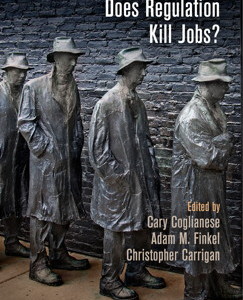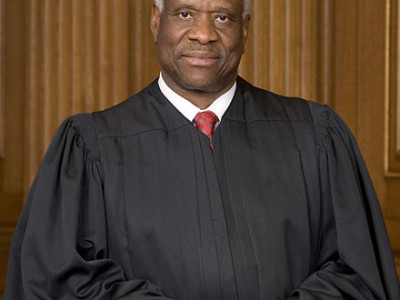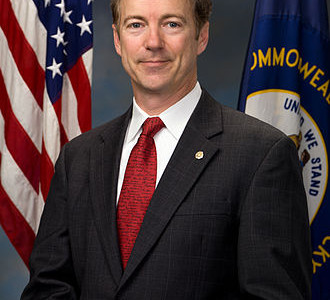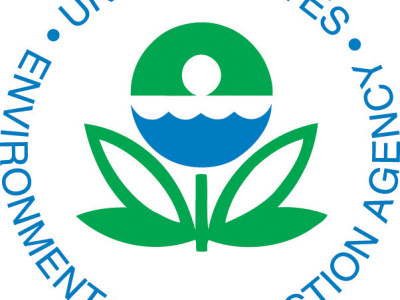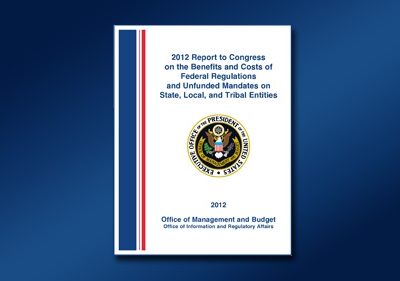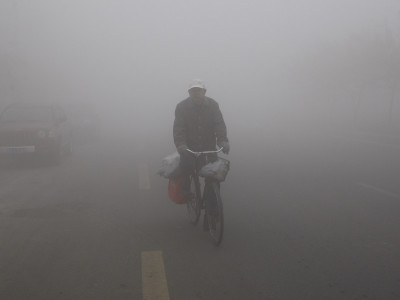regulation
Jobs & Regs
The empirical evidence suggests that job loss from regulation is small.
It seems to be easy to make arguments one way or another about the effect of regulation on jobs. What does the evidence say? Those seeking an answer would do well to look at a recent book on the subject by Coglianese, Finkel, and Carrigan. Although the book is broader in scope, it provides a careful …
Continue reading “Jobs & Regs”
CONTINUE READINGJustice Thomas Declares War on Rulemaking
His Amtrak dissent would wipe out most regulations of the last 40 years.
It didn’t get much attention, but Justice Thomas’s dissent two weeks ago in the Amtrak case was extraordinarily radical, even for him. The case involved a relatively obscure issue about the legal status of Amtrak. Justice Thomas used the occasion for a frontal attack on administrative law, including most of environmental law.. The heart of …
Continue reading “Justice Thomas Declares War on Rulemaking”
CONTINUE READINGEcon101, Ideological Blinders, and the New Head of CBO
There are troubling indications that Keith Hall lets ideology blind him to basic economics.
Last week, in a post about the employment effect of regulations, I mentioned briefly that the new Director of the Congressional Budget Office, Keith Hall, had endorsed some questionable views on the subject. A reader pointed me toward an additional writing that has done a lot to escalate my concerns. There are disturbing signs about both Hall’s ideological bias …
Continue reading “Econ101, Ideological Blinders, and the New Head of CBO”
CONTINUE READINGHow to Erode Public Confidence in Regulatory Decisions: Meet With Parties Behind Closed Doors
A scandal at the California Public Utilities Commissions brings a questionable practice to light.
The California Public Utilities Commission (CPUC) has an unusual way of doing business. Most state and federal regulatory agencies prohibit private, closed-door discussions with interested parties about contested matters (ex parte communications). Even though it makes decisions affecting the welfare of Californians and the disposition of billions of dollars, the CPUC does not discourage ex …
CONTINUE READINGRand Paul and the Environment (Take 2)
Guess what: he’s no friend of the environment.
Yesterday I posted a confused discussion of Paul’s environmental views. (Probably due to brain lock from spending too many hours puzzling over the numerical examples in EME Homer!) I wanted to replace it with a clearer description of his views, so I pulled it from the website. Let’s try this again. This first thing to know about Senator Paul is …
Continue reading “Rand Paul and the Environment (Take 2)”
CONTINUE READINGEPA Is One of the (Relatively) Popular Kids
Despite all the attacks it has suffered, EPA has a better image than either political party. Not to mention Congress.
Republicans — especially the House GOP — often lambaste EPA. The phrase “jack-booted thugs” will stick in my memory a long time. A recent NBC/WSJ poll, however, shows EPA is actually one of our more popular institutions: %Positive %Negative Difference EPA 40 28 +7 Barack Obama 38 40 -4 Democratic Party 38 50 -2 Republican …
Continue reading “EPA Is One of the (Relatively) Popular Kids”
CONTINUE READINGChina’s Pollution Challenge
Can a new law save China’s environment?
Benjamin van Rooij and I published the following in the New York Times op-ed page today. In short, it is about the challenges the new Environmental Protection Law will face in practice and the critical reforms needed to overcome these challenges: China’s national legislature has adopted sweeping changes to the country’s Environmental Protection Law, revisions …
Continue reading “China’s Pollution Challenge”
CONTINUE READINGThe Lost World of Administrative Law
The regulatory process has become more opaque and less accountable. We need to fix that.
Every year, thousands of law students take a course in administrative law. It’s a great course, and we wish even more students took it. But there’s a risk that students may come away with a vision of the regulatory process that is increasingly disconnected with reality. Worse, the leading judicial opinions on the subject suggest …
Continue reading “The Lost World of Administrative Law”
CONTINUE READINGIs It Unconstitutional for the President to Implement Major New Policies by Regulation?
According to the Supreme Court, when statutes are unclear, the President is supposed to make policy judgments. That’s not unconstitutional — it’s just business as usual.
The short answer is a resounding No. Some domestic initiatives obviously do require Congressional approval because they are clearly outside the authority conferred by existing law. But Congress has given the executive branch broad discretion to regulate in many areas, and the executive branch can use that authority for major policy initiatives. The only real …
CONTINUE READINGAir Pollution in China Shuts Down City of 11 Million
The airpocalypse is back. What should Chinese leaders do about it?
On Sunday, the start of the heating season in northern China brought the “airpocalypse” back with a vengeance (although some might say it never left). Harbin, the capital of Heilongjiang Province and home to 11 million people, registered fine particulate (PM2.5) pollution levels beyond 500 on the Chinese Air Quality Index, which is considered hazardous …
Continue reading “Air Pollution in China Shuts Down City of 11 Million”
CONTINUE READING



